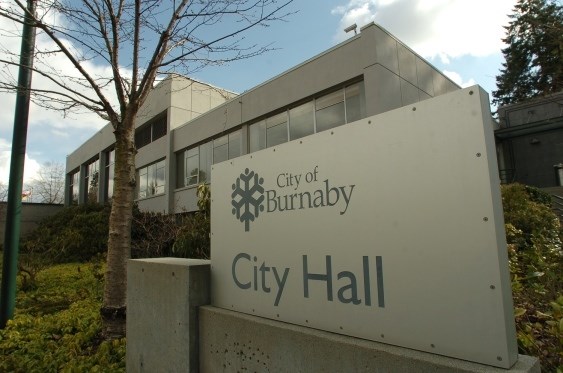The Burnaby First Coalition is accusing the Burnaby Citizens Association of unnecessarily raising taxes when the city has more than $1 billion in fiscal reserves.
The only thing is, the city doesn’t have more than $1 billion in fiscal reserves.
In a statement, the opposition claims a tax levy of 1.97 per cent is unneeded when the City of Burnaby’s combined investment portfolio and development cost charges total just over 10 figures. The BFC refers specifically to comments made by Coun. Dan Johnston to the NOW earlier this month regarding the levy.
“Coun. Dan Johnson (sic) recently stated that the tax increase is lower than originally projected,” reads the statement. “He omitted mentioning that Burnaby has relatively liquid financial assets worth at least $1.033 billion – with a ‘B.’
“Burnaby First believes this ‘BCA Billion’ indicates excessive taxation.”
But while the city’s 2013 investment portfolio contains long- and short-term investments valued at $891.9 million, the city’s reserve funds are actually worth $620 million – and much of that money is spoken for.
“That’s money that’s held for capital replacements,” said Johnston, who chairs the city’s finance and civic development committee.
As outlined in the 2013 financial report, $447 million is held for capital replacements, $76 million belongs to utilities, $61 million is used for environmental projects and the remaining $35 million is held in operating reserves for emergencies.
Furthermore, the DCCs, valued at $142 million, are retained for capital projects like social housing, rec centres and park improvements.
“It’s not disposable money that we can use for whatever pet project that Burnaby First or whatever wants,” said Johnston.
Johnston said the city has roughly $4 million in liquid assets for other emergencies, adding that the BFC’s billion-dollar estimate is “quite scarily off the mark.”
“I think it would be irresponsible to cash the reserves to artificially keep the tax rate low when you don’t know what kind of emergencies are down the road,” he said.
Nonetheless, the BFC is in favour of imposing a limit on reserve fund growth, according to its statement.
“Their claim of being efficient is outrageous spin,” states BFC activist Bruce Friesen, who called for a statutory reserve cap of three times the capital budget when he ran for city council under the Burnaby Greens in 2011. “Mayor (Derek) Corrigan and Coun. Johnson (sic) need to read the big numbers in small print in the annual financial report and then try again to explain their tax increase.
“Instead they expect us to thank them for not raising our taxes even more.”
This isn’t the first time members of the BFC have criticized the size of the city’s reserve fund: In 2011, Nick Kvenich, who is listed on the BFC’s board, called the city’s then-$666-million fund excessive when he ran as an independent council candidate in the last municipal election.
“They unfortunately try this about every second election or so,” said Johnston. “If we (mitigated taxes with reserves) today, the tax rate in the following year would have to go up because those funds wouldn’t be available for emergencies. The investment base would be lower, too.”


